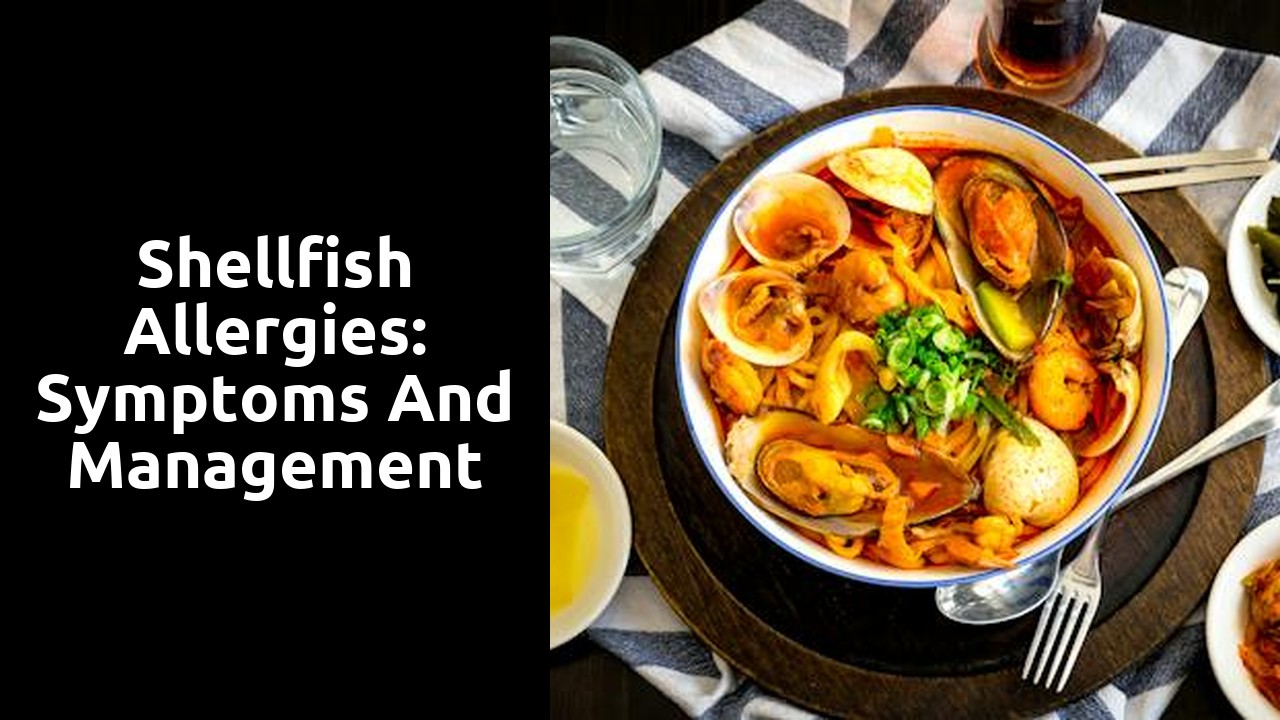Shellfish Allergies: Symptoms and Management

Understanding the Impact: Unveiling the Effects of Shellfish Allergies
Shellfish allergies can have a significant impact on the lives of those affected. The effects of these allergies can range from mild discomfort to life-threatening reactions. One of the primary effects of shellfish allergies is the potential for anaphylaxis, a severe and potentially fatal allergic reaction. This reaction can cause difficulty breathing, a sudden drop in blood pressure, and swelling of the throat and tongue. It is crucial for individuals with shellfish allergies to be aware of these effects and take appropriate precautions to avoid exposure.
Aside from the immediate physical effects, shellfish allergies can also have a profound emotional and social impact. For individuals with severe allergies, the constant fear of accidental exposure can be overwhelming. This fear can lead to anxiety and limitations on daily activities such as dining out or attending social events. The impact on mental well-being should not be underestimated, as it can affect overall quality of life and social interactions. Understanding the full impact of shellfish allergies is crucial in order to provide appropriate support and management strategies for those affected.
The Hidden Culprits: Identifying Common Triggers of Allergic Reactions
Common triggers of shellfish allergic reactions can often go unnoticed, making it challenging for individuals with allergies to properly identify and avoid them. One of the most significant culprits is cross-contamination. When shellfish and other food items come into contact with one another during storage, preparation, or cooking, there is a risk of allergen transfer. This can occur in restaurants or even at home when using shared utensils or cooking surfaces. Additionally, shellfish can be hidden in a variety of processed food products, such as salad dressings, soups, and sauces. It is crucial to carefully read ingredient labels and be aware of the different names that shellfish might be listed as, such as crustacean or mollusk, which are common terms used in ingredient lists. By being vigilant and knowledgeable about potential hidden sources, individuals with shellfish allergies can take necessary precautions to avoid exposure and potentially life-threatening reactions.
When the Body Rebels: Unraveling the Symptoms of Shellfish Allergies
When the body is faced with a shellfish allergy, it does not hesitate to rebel against the allergens. The symptoms of shellfish allergies can vary in severity and can manifest in different ways. One common symptom is itching, which can affect the skin, throat, and even the eyes. This persistent itchiness can be quite uncomfortable, and scratching the affected areas only exacerbates the irritation. Additionally, individuals with shellfish allergies may experience hives, which are raised, itchy patches that appear on the skin. These hives can spread throughout the body and can vary in size and shape.
Navigating the Danger Zone: How to Minimize Risk and Stay Safe
To minimize the risk of a shellfish allergic reaction, it is crucial to be vigilant and informed. One of the first steps is to exercise caution when dining out or ordering takeout. Make sure to communicate your allergy to the waitstaff or chef, and inquire about the ingredients in the dishes you are interested in. It is essential to stress the severity of the allergy and ask about cross-contamination in the kitchen to ensure your safety. Additionally, when grocery shopping, always read food labels carefully. Look out for any mention of shellfish or shellfish derivatives in the ingredient list, as they may not always be immediately obvious. Stay away from products that have labels such as "may contain shellfish" or "processed in a facility that also handles shellfish," as these can pose a risk of cross-contamination.
Lifesaving Measures: Emergency Management of Shellfish Allergic Reactions
In the event of a severe shellfish allergic reaction, prompt and effective action is crucial. Anaphylaxis, the most severe type of allergic reaction, can occur within minutes of exposure and is potentially life-threatening. It is characterized by symptoms such as difficulty breathing, swelling of the throat, rapid heartbeat, and a sudden drop in blood pressure. Immediate medical attention should be sought if any of these symptoms occur. Administering epinephrine, a form of adrenaline, is the first line of treatment for anaphylaxis. It helps to reverse the symptoms and stabilize the individual until further medical intervention is available. It is important for individuals at risk of shellfish allergies to have an epinephrine auto-injector on hand at all times, especially when dining out or participating in activities where accidental exposure to shellfish may occur.
Beyond the Obvious: Unexpected Sources of Shellfish Allergens
It's not just seafood lovers who need to be cautious when it comes to shellfish allergies. Surprisingly, some unexpected sources can trigger allergic reactions in those with this type of allergy. One such source is the use of certain medications. Some commonly prescribed drugs, such as glucosamine and some antibiotics, can contain derivatives of shellfish. This means that individuals allergic to shellfish may experience an allergic reaction when taking these medications, even if they are not aware of their shellfish content. It is crucial for individuals with shellfish allergies to carefully read the labels of any medications they may be prescribed and consult their healthcare provider about potential allergens.
Another unexpected source of shellfish allergens lies in the realm of flavorings and additives. Ingredients like imitation crab meat or artificial seafood flavorings can contain shellfish proteins. These additives are often used in processed foods, sauces, and condiments, making it essential for those with shellfish allergies to be vigilant when reading product labels. It's not just seafood dishes that may pose a risk; even seemingly innocuous foods could potentially contain hidden shellfish allergens. The key is to always be aware of the possibility and take appropriate precautions to avoid any potential allergic reactions.
Related Links
Shellfish as a Source of ProteinHow to Select and Store Shellfish
Sustainable Shellfish Farming Practices
Cultural Significance of Shellfish in Different Regions
Common Shellfish Misconceptions